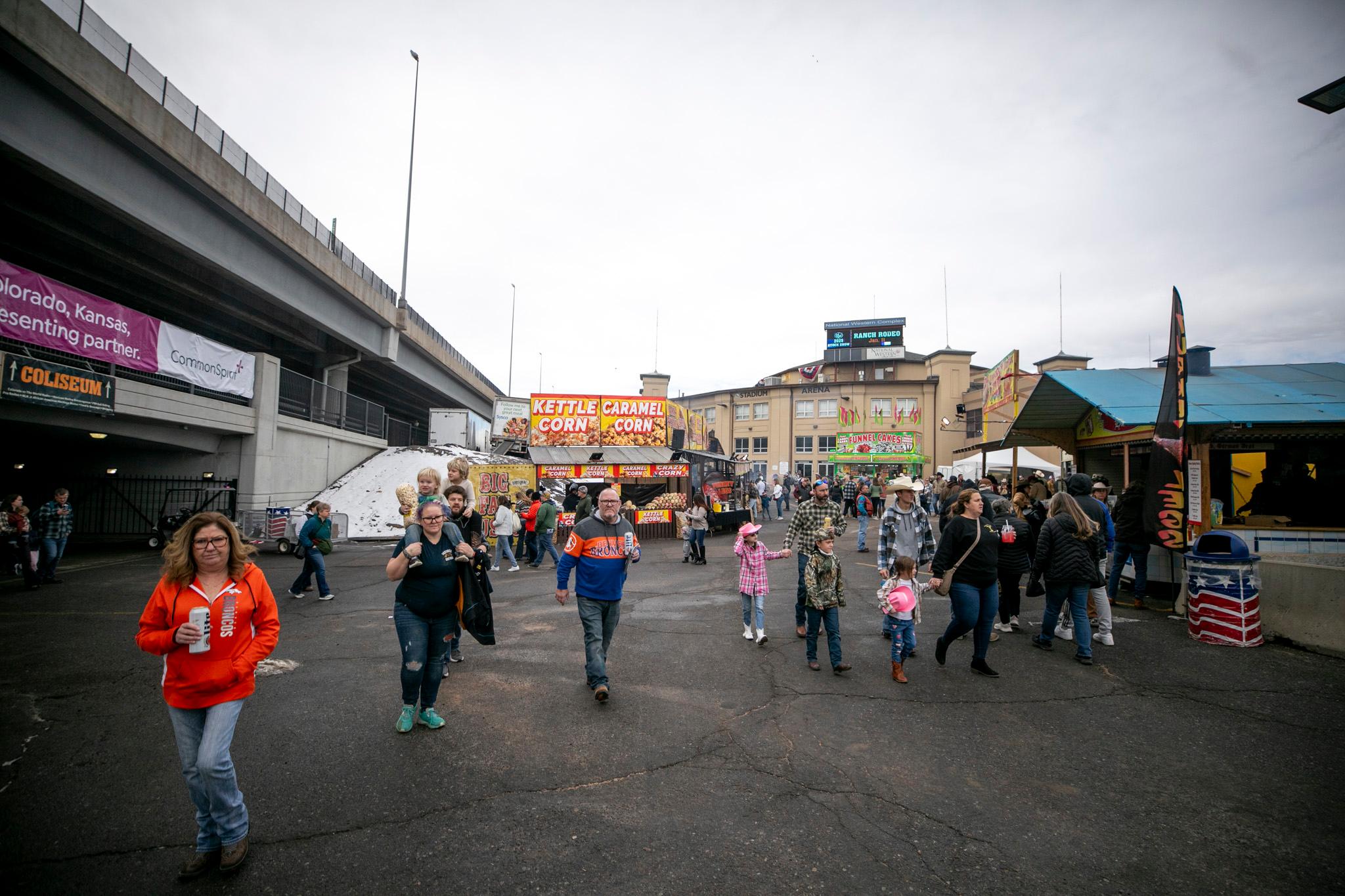Denver City Council will vote Monday on a major milestone for redevelopment at the National Western Center: an agreement to send $23.3 million per year, for 35 years, to the authority that is reshaping the home of Denver’s annual stock show. It would be $812 million in total, sourced from tourism taxes passed in 2015 to support the area.
The spending is part of a sweeping redevelopment plan that has already brought a new Colorado State University campus and green space to Elyria Swansea. It’s an attempt to keep the annual National Western Stock Show in Denver, and put its venue to better use during the rest of the year.
Brad Buchanan, CEO of the National Western Center Authority, which manages the property, said the project will be a boon for the city as a whole, and for neighbors who live nearby.
“We are trying to have the rising tide of this project lift all boats,” he said.
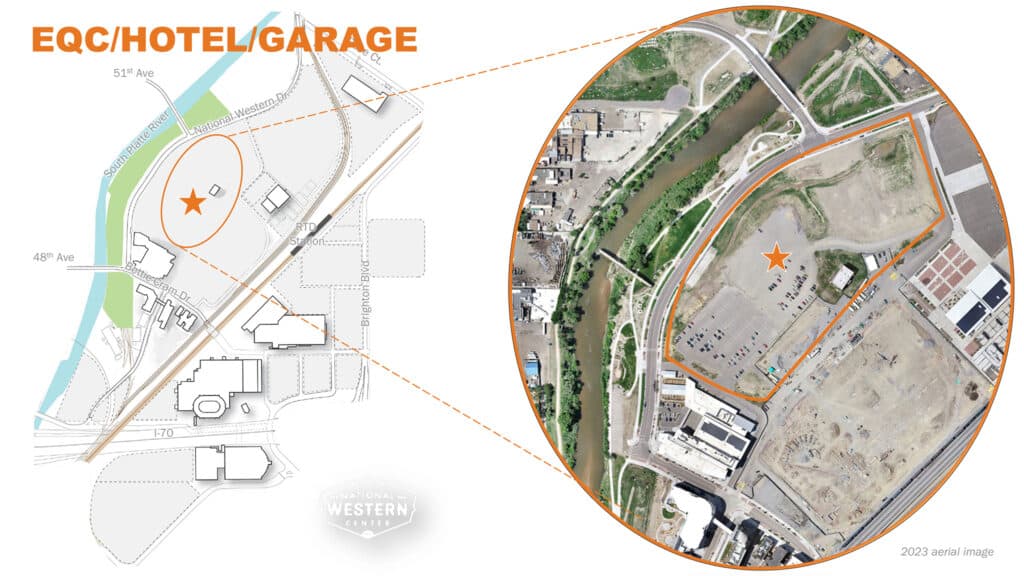
But for years, residents and advocates have been fretting about what all these changes will do to the historically underserved neighborhood. They worry that money flowing in might make it such a desirable place to live that longtime, lower-income neighbors will be displaced. Some have already lost homes to the campus expansion.
The National Western Center Authority (NWCA) and its partners have tried to soothe those concerns with public outreach. The authority board currently has seats for two community members to weigh in on major approvals. It also funnels money to neighborhood initiatives with a new Community Investment Fund (CIF), which is fueled by “round up” dollars collected from sales at rodeos and trade shows.
A planned hotel and equestrian center are poised to bring more money to the CIF, but some community leaders — including the stewards of the Community Investment Fund — say underlying profit-sharing agreements aren’t enough.
In the lead-up to City Council’s vote on Monday, they’re hoping city leaders might use their power to delay funding and hold out for a better deal for the neighborhood.
Advocates say the money won’t be enough to keep people in their homes.
This week, Shannon Hoffman, project manager of the Community Investment Fund, sent an email to city and NWCA leaders rejecting a proposed profit-sharing plan for the future hotel and equestrian center.
In recently released forecasts, the NWCA estimated that community groups would get between $100,000 and $430,000 per year as campus revenues grew. Revenues come from voluntary “round ups” at points of sale, a fee on rooms sold at the hotel and an annual “fundraising day.” These numbers don’t include donation programs at other sites on campus.
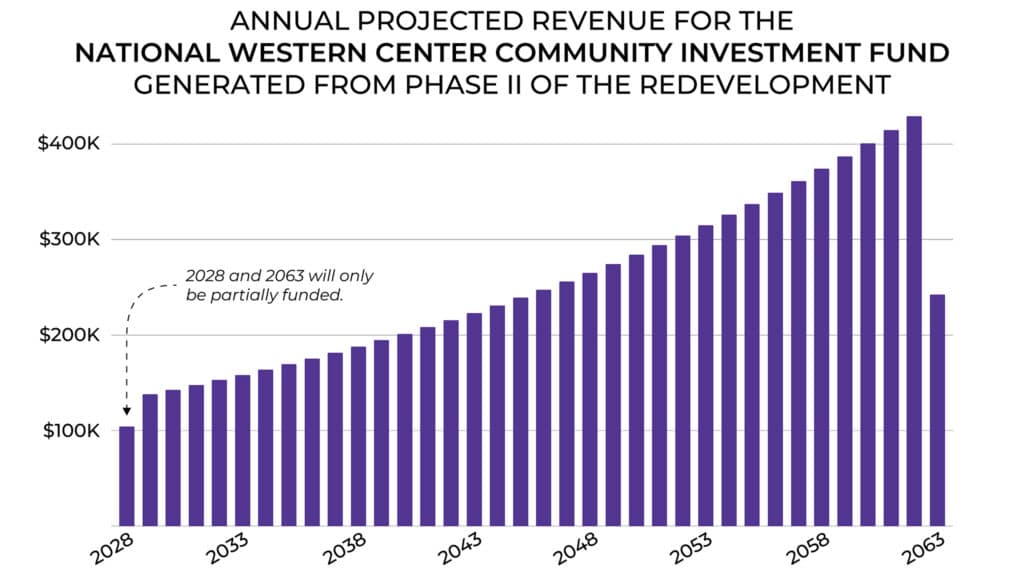
Hoffman said those projections and the already active “round up” program won’t add up to what the community was promised: 1 percent of all city dollars spent to subsidize the redevelopment.
Steve Nalley, head of real estate for the NWCA, challenged that point in his response to Hoffman, saying they do expect to deliver on that commitment.
But Hoffman argued that these projections, which are based on voluntary donations at points of sale and hotel stays, are far from certain.
“That is a projection based on a feasibility study and pro forma that we are not allowed to see,” Hoffman said. “One thing we do not have memorialized is what happens if these projections are not met.”
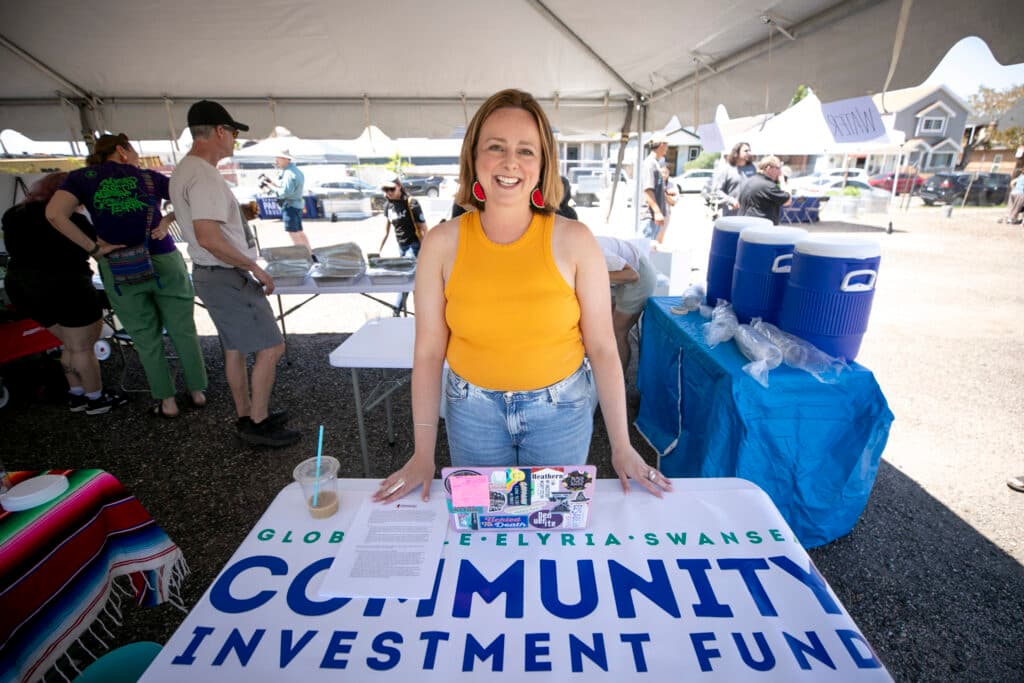
Buchanan responded with a statement that he asked be quoted in full:
“The success of the CIF revenue is aligned with the success of the campus. The more events and visitors to the campus, the greater the CIF revenue. Our long term goals are completely aligned with our community partners. The roundup that will fund the CIF is a requirement through the framework agreement for all points of sale on the campus. The additional room night fee and annual fundraising day for CIF will be further defined in the development agreement for the [Equestrian] Center and Hotel project. The CIF revenue amounts we have projected are based on conservative estimates."
But even if the community does receive hundreds of thousands each year, Hoffman added that money probably won’t be enough to stop displacement. The ideal, she said, would be to use the money to buy homes that might remain affordable as the neighborhood grows.
“$100,000 a year does not provide us with any purchasing power,” she said.
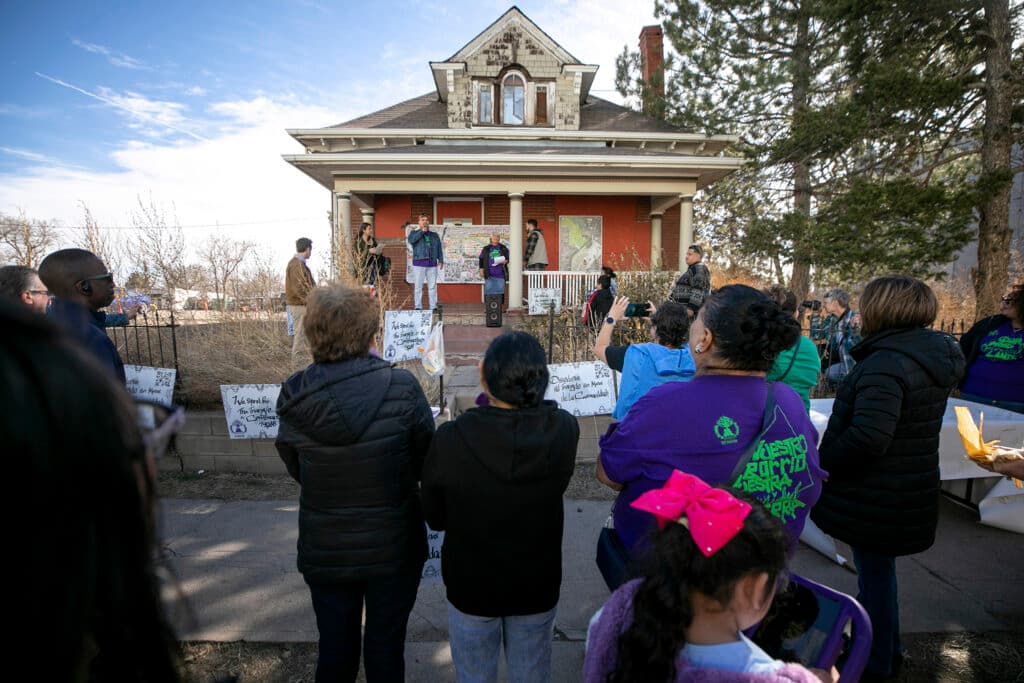
This beef isn’t just about the money.
Hoffman also took issue with the ways that these profit-sharing agreements have been decided and communicated.
She said her group asked for those financial projections “for the better part of a year,” only to receive them just days before City Council’s vote. She also requested that profit-sharing agreements be enshrined in legally binding documents that direct how the project will operate into the future.
She accused the authority of paying lip service to its neighbors.
“We will not be used as a bargaining chip to show community approval,” she wrote. “We are asking to be true partners in this process — to be at the negotiation table and to negotiate revenue shares that show true equity with respect to what neighbors have given over generations.”
The argument is part of a larger tug-of-war over who will benefit from ongoing growth in the area. Community groups like the GES Coalition have been pushing Mayor Mike Johnston to commit to “community ownership” of the last undeveloped piece of the National Western Center, known as the “triangle,” since he took office.
“It's like the continued colonization of community,” said Angela Garcia, a CEF board member who’s lived in Globeville since her family was forced out of Auraria in the 1960s. “More people are going to be displaced because right now we struggle to pay our rent and our mortgage and our property. It's just going to get worse and they don't think twice about it.”
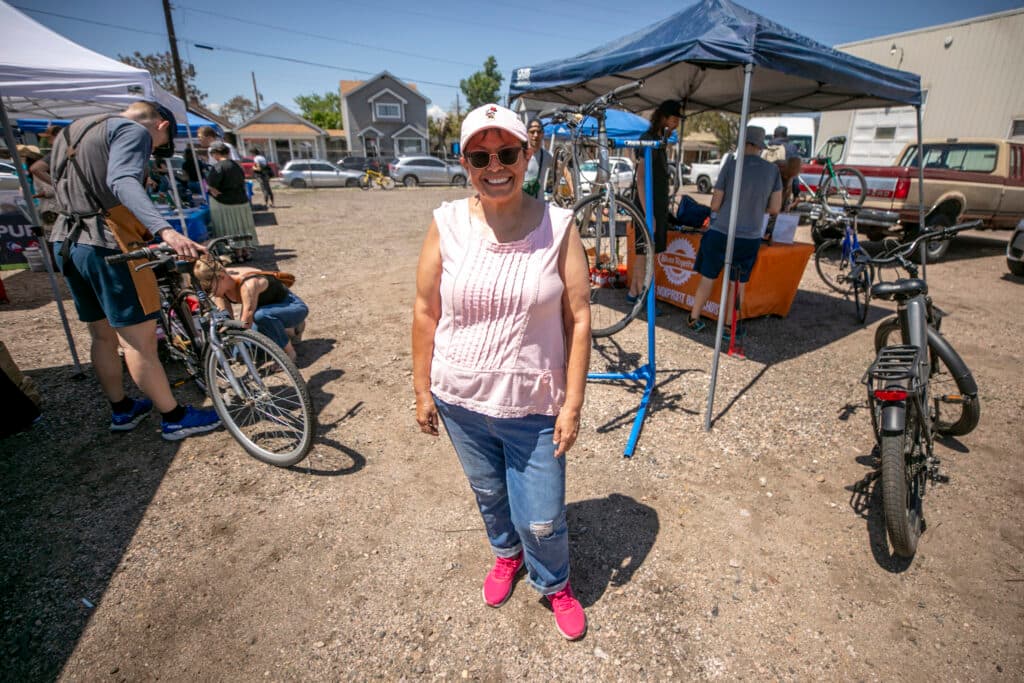
Officials say community members are on track to get what they’ve asked for.
Buchanan, of the NWCA, told us Friday that the engagement process surrounding this work is unprecedented.
“This has been a 24-month process. We've held 66 convenings, meetings, task forces, town halls. We've done three mailings to every household in [Globeville and Elyria Swansea]. We've done an online survey. I mean, this was our most extensive outreach and community input process we've done to date,” he said.
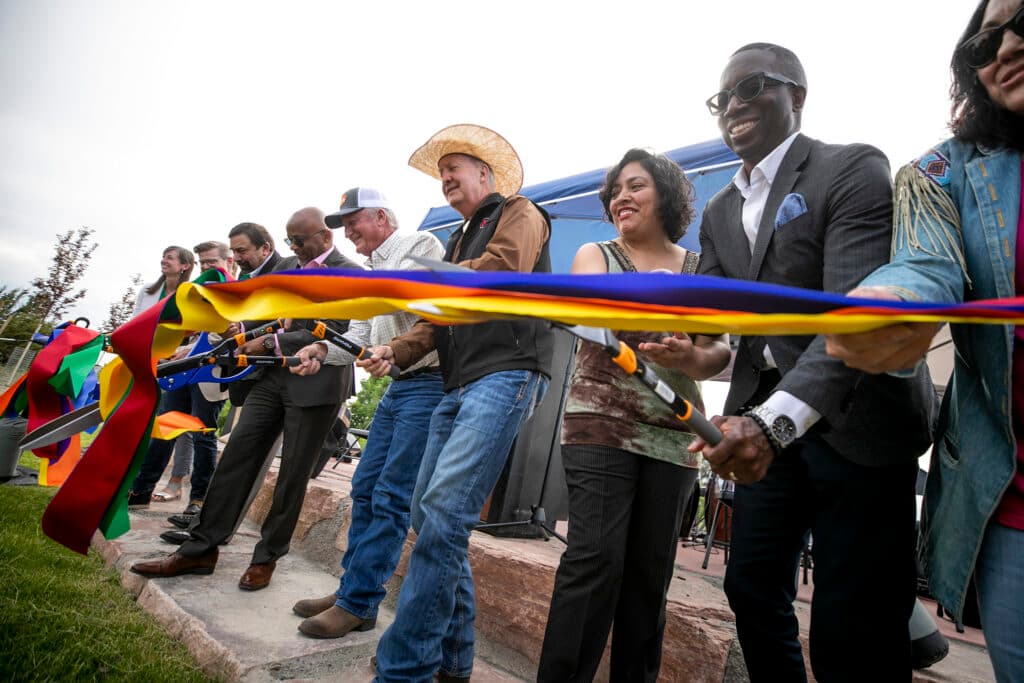
The delayed release of financial projections for the community fund, he said, was related to ongoing uncertainty in supply chains and national economics that impact construction costs. He said officials got those numbers together as quickly as they could.
The fact that neighbors have been so close to the process, he said, might be one reason they’re frustrated. Usually, developers get their plans in order and then present them to communities.
“Part of the risk of being completely transparent, in a process like we have done on this project, is that it's messy,” he said. “This is a complex project and process. We shared it the second we possibly could.”
Still, Hoffman is treating the vote as an inflection point to push for changes to these agreements. Buchanan said there’s still time to make sure they’re satisfied.
“This is not the last chance,” he said. “We committed, in our meeting with them last week, that we would bring them further into the negotiations.”
At-large council members Sarah Parady and Serena Gonzales-Gutierrez and District 9 Councilmember Darrell Watson were not available to comment on the impending vote on Friday.

